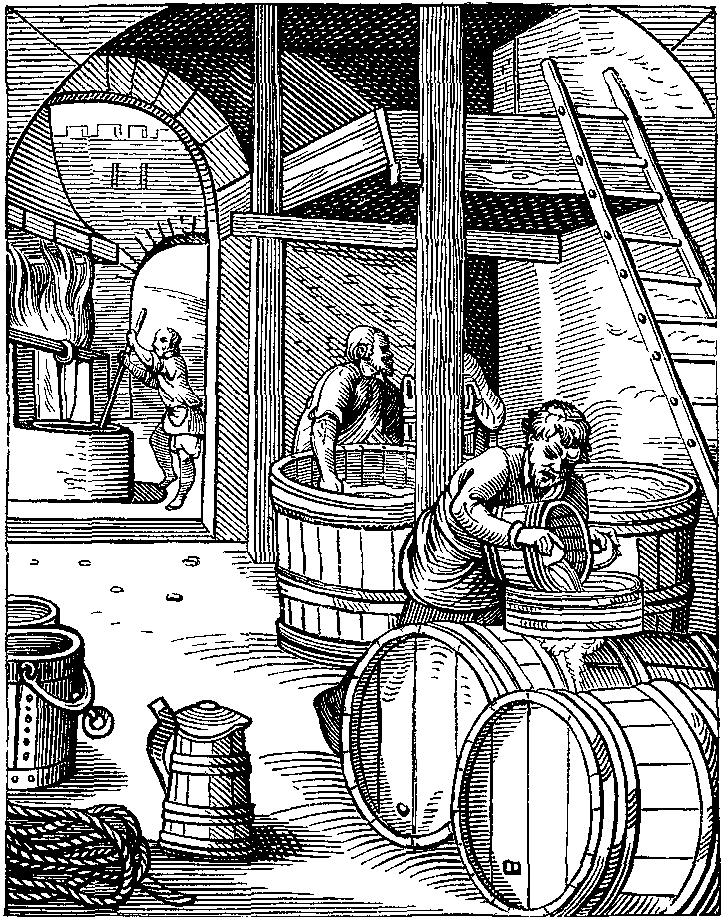History of biotechnology
History of Biotechnology
The History of Biotechnology traces the development of biotechnology, a field that merges biology with technology, influencing sectors such as medicine, agriculture, and environmental science. Biotechnology harnesses cellular and biomolecular processes to develop technologies and products that help improve our lives and the health of our planet.
Origins[edit | edit source]
The roots of biotechnology date back to ancient civilizations, where humans first began to domesticate plants and animals and ferment food products. The making of bread, beer, and cheese using fermentation techniques are early examples of biotechnological processes.
Classical Biotechnology[edit | edit source]
In the 19th century, the foundation for modern biotechnology was laid with the discovery of microorganisms by Louis Pasteur. Pasteur's work on fermentation and the germ theory of disease debunked the theory of spontaneous generation and set the stage for microbiology. Around the same time, Gregor Mendel's work on genetics with pea plants laid the groundwork for understanding heredity, although his work was not fully appreciated until the early 20th century.
20th Century Advances[edit | edit source]
The 20th century saw significant advances in biotechnology. The development of antibiotics, starting with penicillin in the 1920s, revolutionized medicine. The discovery of DNA structure in 1953 by James Watson and Francis Crick marked a pivotal moment in biotechnology, leading to the development of genetic engineering.
In the 1970s, the invention of recombinant DNA technology by Herbert Boyer and Stanley Cohen allowed for the insertion of foreign DNA into organisms, a breakthrough that led to the production of insulin and growth hormones by genetically modified bacteria. This period also saw the rise of the biotechnology industry, with companies like Genentech leading the way in commercializing biotechnological innovations.
Regulation and Ethics[edit | edit source]
As biotechnology advanced, so did the need for regulatory frameworks to ensure the safety and ethical use of biotechnological innovations. The Asilomar Conference on Recombinant DNA in 1975 was a landmark event that established guidelines for biotechnology research, emphasizing the need for containment and oversight.
21st Century Biotechnology[edit | edit source]
The 21st century has witnessed the rapid growth of biotechnology, with the sequencing of the human genome and the development of CRISPR gene editing technology. These advances have opened new possibilities in personalized medicine, agricultural biotechnology, and biofuels, among other areas.
Biotechnology also faces ethical and societal challenges, including concerns over genetically modified organisms (GMOs), bioethics, and the accessibility of biotechnological innovations.
Conclusion[edit | edit source]
The history of biotechnology is a testament to human curiosity and ingenuity. From ancient fermentation processes to cutting-edge genetic engineering, biotechnology has evolved to become a crucial field that promises to address some of the most pressing challenges facing humanity.
Navigation: Wellness - Encyclopedia - Health topics - Disease Index - Drugs - World Directory - Gray's Anatomy - Keto diet - Recipes
Search WikiMD
Ad.Tired of being Overweight? Try W8MD's physician weight loss program.
Semaglutide (Ozempic / Wegovy and Tirzepatide (Mounjaro) available.
Advertise on WikiMD
WikiMD is not a substitute for professional medical advice. See full disclaimer.
Credits:Most images are courtesy of Wikimedia commons, and templates Wikipedia, licensed under CC BY SA or similar.
Contributors: Prab R. Tumpati, MD




